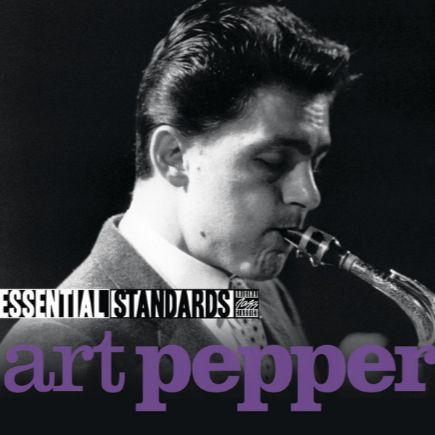Nature Boy: parabole jazz et quête d’absolu
Composé en 1947 par eden ahbez — alias George Alexander Aberle — Nature Boy doit sa notoriété à l’interprétation envoûtante de Nat King Cole, qui en fit un immense succès.
Derrière cette mélodie en apparence simple se cache un auteur singulier, figure marginale et mystique, adepte d’un mode de vie végétalien et d’une philosophie naturaliste. ahbez écrivait son nom sans majuscules, qu’il réservait, disait-il, à Dieu et à l’Infini. Retiré dans les collines de Los Angeles, il vivait sous l’une des lettres du mot HOLLYWOOD lorsqu’il fut finalement retrouvé par le manager de Cole, qui cherchait à obtenir son accord pour l’enregistrement du titre chez Capitol Records.
Mais Nature Boy dépasse le statut de simple ballade populaire. Son texte, construit comme une parabole, raconte la rencontre avec un garçon solitaire qui délivre un message aussi bref qu’universel: “The greatest thing you’ll ever learn is just to love and be loved in return” — La plus grande chose que vous puissiez apprendre, c’est simplement d’aimer et d’être aimé en retour. Cette phrase, à la fois limpide et profonde, confère à la chanson une portée presque initiatique.
Sur le plan musical, Nature Boy s’inspire d’un langage classique teinté d’Orientalisme — certains y perçoivent l’empreinte de la Chanson Bohème de Bizet — tout en adoptant une structure modale.
Art Pepper: la poésie nue de l’introspection
Enregistrée le 21 septembre 1979 à Berkeley pour l’album Straight Life, la version de Nature Boy témoigne d’un Art Pepper au sommet de sa maturité expressive, habité par une intensité émotionnelle à la fois fragile et incandescente. Entouré de Tommy Flanagan au piano, Red Mitchell à la contrebasse et Billy Higgins à la batterie, le saxophoniste y livre une interprétation d’une profondeur rare, où la mélodie d’Eden Ahbez devient un espace de confession musicale, suspendu entre tendresse et mélancolie.
Dès l’introduction, le ton est posé: sobre, lent, chargé d’une tension retenue. Le timbre clair et légèrement voilé d’Art Pepper porte chaque note comme un souffle intérieur. Son phrasé, d’une clarté presque vocale, épouse le lyrisme du thème sans jamais sombrer dans le pathos.
Autour de lui, le trio de Flanagan, Mitchell et Higgins forme un écrin d’une délicatesse exquise. Tommy Flanagan, maître du toucher et du chant intérieur, accompagne avec une précision poétique, tissant un dialogue harmonique d’une grande pudeur. Red Mitchell, par sa sonorité ronde et sa justesse mélodique, ancre l’ensemble dans une respiration profonde, tandis que Billy Higgins, tout en souplesse, soutient la trame avec une légèreté quasi spirituelle.
Nature Boy: parábola jazzística y búsqueda del absoluto
Compuesta en 1947 por eden ahbez — alias George Alexander Aberle — Nature Boy debe su fama a la hipnótica interpretación de Nat King Cole, quien la convirtió en un gran éxito.
Detrás de esta melodía aparentemente sencilla se oculta un autor singular: figura marginal y mística, adepto de un estilo de vida vegano y de una filosofía naturalista. ahbez escribía su nombre sin mayúsculas, que, según decía, debían reservarse a Dios y al Infinito. Retirado en las colinas de Los Ángeles, vivía bajo una de las letras de la palabra HOLLYWOOD cuando finalmente fue localizado por el representante de Cole, que buscaba su consentimiento para la grabación del tema con Capitol Records.
Pero Nature Boy trasciende el estatus de simple balada popular. Su letra, construida como una parábola, narra el encuentro con un muchacho solitario que transmite un mensaje breve pero universal: “The greatest thing you’ll ever learn is just to love and be loved in return” — Lo más grande que podrás aprender es simplemente amar y ser amado a cambio. Esta frase, tan clara como profunda, confiere a la canción un alcance casi iniciático.
En lo musical, Nature Boy se inspira en un lenguaje clásico con tintes orientalistas — algunos reconocen la huella de la Chanson Bohème de Bizet — adoptando al mismo tiempo una estructura modal.
Art Pepper: la poesía desnuda de la introspección
Grabada el 21 de septiembre de 1979 en Berkeley para el álbum Straight Life, la versión de Nature Boy muestra a un Art Pepper en la cima de su madurez expresiva, poseído por una intensidad emocional a la vez frágil e incandescente. Acompañado por Tommy Flanagan al piano, Red Mitchell al contrabajo y Billy Higgins a la batería, el saxofonista ofrece una interpretación de profundidad excepcional, en la que la melodía de Eden Ahbez se convierte en un espacio de confesión musical, suspendido entre ternura y melancolía.
Desde la introducción, el tono queda establecido: sobrio, lento, cargado de una tensión contenida. El timbre claro y ligeramente velado de Art Pepper sostiene cada nota como un aliento interior. Su fraseo, de una claridad casi vocal, abraza el lirismo del tema sin caer jamás en el patetismo.
A su alrededor, el trío formado por Flanagan, Mitchell y Higgins crea un entorno de exquisita delicadeza. Tommy Flanagan, maestro del toque y del canto interior, acompaña con una precisión poética, tejiendo un diálogo armónico de gran pudor. Red Mitchell, con su sonoridad redonda y su exactitud melódica, ancla el conjunto en una respiración profunda, mientras Billy Higgins, con flexibilidad y sutileza, sostiene la trama con una ligereza casi espiritual.
Nature Boy: parabola jazz e ricerca dell’assoluto
Composto nel 1947 da eden ahbez — pseudonimo di George Alexander Aberle — Nature Boy deve la sua celebrità all’interpretazione magnetica di Nat King Cole, che ne fece un grande successo.
Dietro questa melodia apparentemente semplice si cela un autore fuori dal comune: figura marginale e mistica, seguace di uno stile di vita vegano e di una filosofia naturalista. ahbez scriveva il proprio nome senza maiuscole, che, a suo dire, andavano riservate a Dio e all’Infinito. Ritiratosi tra le colline di Los Angeles, viveva sotto una delle lettere della scritta HOLLYWOOD quando fu infine ritrovato dal manager di Cole, desideroso di ottenere il suo consenso per l’incisione del brano presso Capitol Records.
Ma Nature Boy va ben oltre la semplice ballata popolare. Il suo testo, costruito come una parabola, racconta l’incontro con un ragazzo solitario che trasmette un messaggio tanto breve quanto universale: “The greatest thing you’ll ever learn is just to love and be loved in return” — La cosa più grande che tu possa imparare è semplicemente amare ed essere amato in cambio. Questa frase, limpida e profonda, conferisce alla canzone una dimensione quasi iniziatica.
Dal punto di vista musicale, Nature Boy si ispira a un linguaggio classico intriso di orientalismo — alcuni vi riconoscono l’eco della Chanson Bohème di Bizet — adottando al contempo una struttura modale.
Art Pepper: la poesia nuda dell’introspezione
Registrata il 21 settembre 1979 a Berkeley per l’album Straight Life, la versione di Nature Boy testimonia un Art Pepper al culmine della sua maturità espressiva, attraversato da un’intensità emotiva insieme fragile e incandescente. Affiancato da Tommy Flanagan al pianoforte, Red Mitchell al contrabbasso e Billy Higgins alla batteria, il sassofonista offre un’interpretazione di rara profondità, in cui la melodia di Eden Ahbez diventa uno spazio di confessione musicale, sospeso tra tenerezza e malinconia.
Fin dall’introduzione il tono è chiaro: sobrio, lento, carico di una tensione trattenuta. Il timbro limpido e leggermente velato di Art Pepper porta ogni nota come un respiro interiore. Il suo fraseggio, di una chiarezza quasi vocale, segue il lirismo del tema senza mai cadere nel patetico.
Intorno a lui, il trio formato da Flanagan, Mitchell e Higgins costruisce un contesto di squisita delicatezza. Tommy Flanagan, maestro del tocco e del canto interiore, accompagna con una precisione poetica, tessendo un dialogo armonico di grande pudore. Red Mitchell, con il suo suono rotondo e la sua giustezza melodica, radica l’insieme in una respirazione profonda, mentre Billy Higgins, con straordinaria flessibilità, sostiene la trama con una leggerezza quasi spirituale.
Nature Boy: a jazz parable and quest for the absolute
Composed in 1947 by eden ahbez — born George Alexander Aberle — Nature Boy owes its fame to Nat King Cole’s mesmerizing rendition, which turned it into a major hit.
Behind this seemingly simple melody lies a singular figure: a mystic and outsider, committed to a vegan lifestyle and a naturalist philosophy. ahbez wrote his name in lowercase letters, claiming that capital letters should be reserved for God and the Infinite. Living in seclusion in the hills above Los Angeles, he reportedly slept under one of the HOLLYWOOD sign’s letters, where he was eventually found by Cole’s manager seeking permission to record the song for Capitol Records.
Yet Nature Boy is far more than a postwar pop ballad. Its lyrics, structured as a parable, tell of a chance encounter with a wandering boy who shares a timeless message: “The greatest thing you’ll ever learn is just to love and be loved in return.” This phrase, both simple and profound, gives the song a near-mystical resonance.
Musically, Nature Boy draws from a classical harmonic language tinged with exoticism — some hear echoes of Bizet’s Chanson Bohème — while employing a modal structure.
Art Pepper: the naked poetry of introspection
Recorded on September 21, 1979, in Berkeley for the album Straight Life, the version of Nature Boy reveals Art Pepper at the height of his expressive maturity, imbued with an emotional intensity that is both fragile and incandescent. Surrounded by Tommy Flanagan on piano, Red Mitchell on bass, and Billy Higgins on drums, the saxophonist delivers a performance of rare depth, in which Eden Ahbez’s melody becomes a space for musical confession, suspended between tenderness and melancholy.
From the very first notes, the tone is set: sober, slow, charged with restrained tension. Art Pepper’s clear, slightly veiled tone carries each note like an inner breath. His phrasing, almost vocal in clarity, embraces the lyricism of the theme without ever lapsing into pathos.
Around him, the trio of Flanagan, Mitchell, and Higgins creates a setting of exquisite delicacy. Tommy Flanagan, master of touch and inner song, accompanies with poetic precision, weaving a harmonic dialogue of great modesty. Red Mitchell, with his rounded tone and melodic precision, grounds the ensemble in deep, breathing resonance, while Billy Higgins, supple and understated, supports the texture with a lightness that feels almost spiritual.


